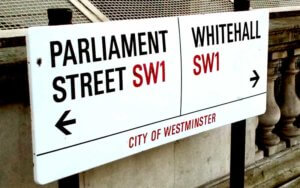The shortage of accessible housing in England poses a “clear and direct risk” to disabled people across the country, with many of them living in unsuitable accommodation for years “without hope”, a report by a committee of MPs has concluded.
Members of the cross-party levelling up, housing and communities committee said in their report that too many disabled people had been failed by the government’s housing policy, with the resulting shortage of accessible housing posing a direct risk to their “dignity, health, and wellbeing”.
Hundreds of disabled people submitted accounts to the committee of their experiences, with many describing the “horrendous impact that living in inaccessible housing can have on a disabled person’s life”.
The Commons committee – which had a Conservative majority – said it had been told of “decades-long” waiting-lists for accessible social housing; significantly higher asking prices for accessible homes; and some landlords denying permission for home adaptations.
And it concluded: “We have found little evidence that the Department for Levelling Up, Housing and Communities is treating disabled people’s needs as a priority in housing policy.”
The committee was highly critical of the government for failing to implement its “headline” policy to address the shortage of accessible housing: increasing the minimum accessibility level of all new-build homes to the M4(2) standard*.
It is now almost two years since the policy was first announced, and almost four years since it was first consulted on, the committee said.
The report also calls on all local authorities in England to include a minimum percentage of M4(3) standard* homes in their local plans.
And it highlights “many shortcomings” in the disabled facilities grant (DFG) system, and calls on the government to raise the current £30,000 upper limit on individual DFG grants.
The committee said it was “deeply disappointing” that the government had still not acted on the main findings of a review it commissioned, which reported in 2018, that made “several appropriate and valuable recommendations on DFG funding, eligibility, and the delivery process”.
The report also points out that none of the actions in the government’s much-criticised Disability Action Plan “specifically address housing for disabled people”.
In fact, the only “substantive reassurance” that housing and homelessness minister Felicity Buchan could provide to the committee was that she had “heard from lots of people on the ground” in her capacity as her department’s ministerial disability champion.
Among those who gave evidence to the committee, one wheelchair-user had been on a waiting-list for accessible accommodation for 16 years, and had been living in temporary accommodation for 13 years, “with no indication as to when an accessible home might become available”.
Another disabled person told the committee they felt “trapped in their own home” because they could only leave with assistance from someone to “bump them down the steps in a wheelchair”.
A third disabled person said they had been told by a London council that there would be a 40-year waiting-time for accessible social housing.
The Department for Levelling Up, Housing and Communities said it was unable to comment on the report because the government was now in the pre-election period.
But Mikey Erhardt, policy and campaigns officer at Disability Rights UK, said: “Almost 30 years after the Disability Discrimination Act and with the UK population including over 14 million disabled citizens, we still have public and private housing that totally fails to meet the needs of disabled people.
“We should all have the right to affordable, accessible housing that keeps us warm and safe.
“As I told the committee (pictured), no one is more at fault for this dangerous mess than successive UK governments.
“They have failed to fund the building of social housing, leaving us in 2023 with six times more newly homeless families than new social houses.
“They have left us stranded, nowhere near the 100,000-a-year target that we need, with record numbers of disabled people in inaccessible, unsafe, and incredibly costly temporary accommodation.
“The committee’s recommendations are welcome, and we urge the next government to use them to make major changes to our housing system.
“The way out of this mess is clear – freeze rents, build more affordable, accessible social rented homes, improve the avenues through which disabled people can get our homes adapted, and create a minimum accessibility standard reflective of the needs of the local population.”
*Homes built to the M4(2) standard have 16 accessible or adaptable features, similar to the Lifetime Homes standard developed in the early 1990s, to make homes more easily adaptable for lifetime use, while M4(3) homes are those that are supposed to be fully wheelchair-accessible
A note from the editor:
Please consider making a voluntary financial contribution to support the work of DNS and allow it to continue producing independent, carefully-researched news stories that focus on the lives and rights of disabled people and their user-led organisations.
Please do not contribute if you cannot afford to do so, and please note that DNS is not a charity. It is run and owned by disabled journalist John Pring and has been from its launch in April 2009.
Thank you for anything you can do to support the work of DNS…

 First Covid inquiry report ‘shows criminally negligent’ attitude of previous governments
First Covid inquiry report ‘shows criminally negligent’ attitude of previous governments Labour’s Cabinet Office refuses to release information on Tory Disability Action Plan
Labour’s Cabinet Office refuses to release information on Tory Disability Action Plan Labour government sidelines disabled people in first king’s speech
Labour government sidelines disabled people in first king’s speech